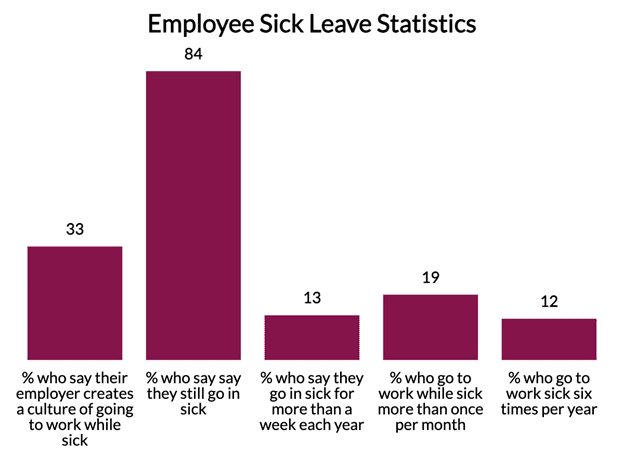There’s an epidemic raging among U.S. workers, but it’s not a virus, and no medication or shot will help. Americans are simply overworked, and they’re neglecting to (or choosing not to) take time off. Time off is critical to the holistic well-being of any employee, but as a nation, we lag behind the rest of the world in acknowledging and prioritizing the need for a break.
That’s why some companies are turning to a required time off (RTO) policy, especially among remote teams. Here, we’ll look at why there’s a trend toward RTO, why it matters to remote employees, and how you can implement it on your own team.
What Is Required Time Off?
Just as it sounds, RTO is a policy that mandates employees take a certain amount of time off during the year. Here in the U.S., there is no federally mandated time off, though many companies recognize certain holidays. Even so, there are no requirements at a national level that holidays are paid, putting us behind most of the rest of the developed world.
Source
In the wake of COVID-19, many employers saw a disturbing trend: workers skipping their designated PTO or signing in to work on their scheduled days off. In fact, Forbes reports 52% of remote employees completed work tasks on their PTO days.
With more than 765 million vacation days going unused in the U.S., we’ve got some serious work to do.
There are different ways to implement time off policies, and you may want to take a hybrid approach to find what works best for your team.
- Mandated time off: Forcing time off ensures employees get a break, but it can also come with a lot of pressure. Mandated time off is most effective for regulating necessary time off, like parental leave, election days, jury duty, and family/sick leave.
- Required time off: This is a little more flexible than mandated time off, as it usually allows employees to choose when they want to be out of the office and is not connected to an event, family, or health situation.
- Recommended time off: This is a softer but still effective approach, in which a company recommends a minimum number of days off during the year but leaves the scheduling to the employees’ discretion. We employ this at FPS, with our recommended minimum of three weeks of personal time (not sick time or holidays) per year.
Why Mandate Time Off?
Why does RTO matter? Time off is intrinsically linked to employee health and well-being, but without federal mandates, and the pressure many remote workers feel after several years of working from home/working remotely, we’re starting to see the fallout of being “always on.” So why push employees to utilize their vacation days?
It Reduces the Risk of Burnout
Burnout spiked in the aftermath of the pandemic, with many employees reporting that they worked longer hours and felt the need to be always available while working from home. Burnout is a serious health condition that impacts physical, mental, and emotional well-being.
The first signs of burnout may look to a manager like disinterest, anger, or even laziness. In reality, these are warning signs of a major problem. Preventing burnout starts with giving attention to employees’ mental health and ensuring time off policies allow them the break they need to refresh and reset.
It Keeps Employees Healthier
Yes, it’s frustrating when numerous employees are out sick at the same time. However, when sick time is discouraged or frowned upon, the consequences are far worse. Most employees still go into the office when they’re ill, and more than a third say it’s because that’s what’s expected of them.

Source
Staying home helps employees get over illnesses more quickly, gives them the opportunity to seek treatment, and also prevents them from spreading sicknesses to their employees.
That’s not as big of an issue on a remote team, but there’s another, larger concern. Remote workers are more likely to feel they ought to work, even when they’re unwell. This hinders their recovery and also results in subpar work.
It Slows the Rate of Quiet Quitting
We’ve all been hearing about quiet quitting, and it’s becoming a significant problem for many employees.
:max_bytes(150000):strip_icc()/what-is-quiet-quitting-6743910_final-8294898fff4d4ca1b39e02e72e9740f4.png)
Source
Quiet quitting is often the result of burnout and reflects some serious fissures in a company’s foundation.
Requiring time off can slow down or even eliminate quiet quitting, as employees are given the time they need to take care of themselves and take a break from the stresses of their work life.
It Increases Retention
Just as RTO lessens the occurrence of burnout, sickness, and quiet quitting, it also boosts the rate of employee retention. While only 4% of employers in the U.S. offer unlimited PTO, it’s one of the top most sought-after benefits among job seekers. Unlimited PTO, combined with required or recommended usage of that time, can help attract a higher level of talent and keep them satisfied with their job.
How to Implement RTO for Remote Teams
So, how can you make RTO (whether required or recommended) part of your remote team policies? Here’s how:
Nail Down Your Policy
First, decide if you’re going to require a certain amount of time off or simply recommend a minimum amount. Remember that mandating or requiring time off can cause undue stress and create a more rigid work environment. It can also increase hardship on other employees if they’re always required to pick up the slack.
To avoid these situations, determine what your policy will be and make sure to document everything. Write down how RTO will work, when it should be taken, and the process for requesting or designating certain days/weeks. Also clarify any days or periods when time off should not be taken (e.g., if your business is particularly busy with budgeting in the last couple months of the year, you might consider making these “blackout dates”).
Communicate
Once your policy is locked down, you need to ensure it’s communicated clearly and effectively with the entire team. You may want to make an announcement during an all-hands meeting, but be sure managers give their teams more specific information in smaller groups or even one-on-one.
Be prepared to answer employees’ questions, and make sure your policy documents are easily accessible. Also consider creating a time off calendar for your team, so employees know when they can and can’t take time off and when colleagues will also be out.
Demonstrate
Make sure your managers are setting an example for employees by also taking required or recommended time off. If employees see that they’re working even harder to “pick up the slack,” they may feel guilt or shame about taking more time off. Be sure that when leaders are off, they are actually off.
That means they aren’t sending emails during their PTO, responding to DMs, or checking up on employees when they’re supposed to be out. The behavior employees see from managers is the behavior they’re likely to emulate, so encourage your leaders to protect their time off and stay off the clock.
Have a Plan
This goes beyond setting your policy and involves making a practical plan for ensuring employees aren’t taking on more burden or picking up the slack when other employees are out. You may also want to incentivize employees to take their recommended time off, whether that’s a travel bonus, a free night’s stay at a nice hotel, or a scheduled day off for a fun team-building activity. Your plan should also outline if and how you differentiate time off from sick time and how each should be handled. Remember that your RTO policy will likely evolve over time, so planning and communicating are key to ensuring its success.
Time off is critical to the success of any team, but especially remote teams where employees often feel the line between work and personal time gets blurred. Requiring or recommending time off shows your concern for your team members’ well-being and helps you reap the rewards of healthy, happy, and satisfied employees.
Want to work for a team that trusts you to take all the time off you need? At FPS, we recommend a minimum of 15 days (three work weeks) of time off each year, but we stay flexible so you can take the time you need to stay healthy and content. Check out our open positions to see if there’s a spot on our team for you!



